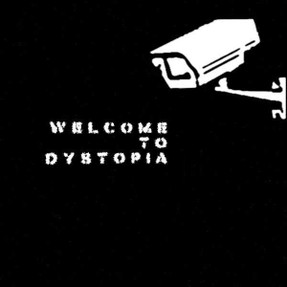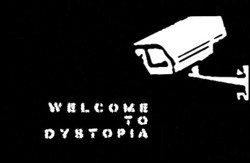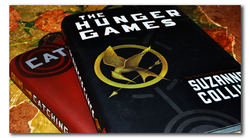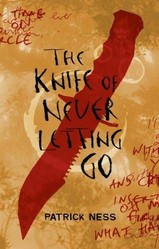 While dystopian fiction has been around for many years, it has never been so popular as it is now with books (and movies) like The Hunger Games, Divergent and Matched, which are mostly young adult dystopian novels.
While dystopian fiction has been around for many years, it has never been so popular as it is now with books (and movies) like The Hunger Games, Divergent and Matched, which are mostly young adult dystopian novels.
The more books we read in this genre, or the more movies we watch, the easier it becomes for us to figure out whether what we read or watch is, in fact, dystopia. We might not be able to put the finger on what exactly the book makes it so, but the feeling is there.
So let's see what exactly are the main characteristics of a dystopian society. When reading the points below you will realize that indeed they are pretty much what you might have thought, without actually voicing them.
First of all there is a very clear social stratification. For example in The Hunger Games, on one hand we have the poor, oppressed and enslaved members of the various districts, whereby the worst of all is District 12, the place where Katniss Everdeen has lived all her life behind electrified fences and with no access to the outside world.
On the other hand the members of the Capitol have all the freedom in the world, they can dress as they like, have money and all the power they can get their hands on. Of course they are also trapped, maybe even more so than the poor ones, but they are given the illusion of freedom due to the silly things like being able to dress how they like, use crazy make-up, and being allowed a sense of vanity that they can cater to.
A well developed technology of surveillance and control of the members. This is pretty true in all the dystopian novels I've read so far. For example in Divergent the movements of all districts are carefully monitored through networked computers in one particular district, which people only learn about towards the end when there is a rebellion against them.
Enforced egalitarianism. This trait is also very common in a dystopian society, where all members have to behave the same way, even dress the same way and live the same way. For example in Matched, everyone lives exactly the same, each girl at the age of 17 goes through a matching ceremony, and there is no freedom of who a person wants to choose to marry. Elderly at the age of 80 are terminated at 12am after their birthday which is celebrated with all the family gathered around.
In Divergent there are 4 clear factions and the members of each faction have certain traits and live, act and even think a particular way, based on which faction they live in.
In Scott Westerfeld's series, the Uglies are turned into Pretties so everyone can look the same, with no personal feelings like love, gelousy and envy, so that the danger of wars is no longer there.
The society has gone first through a post-apocalyptic stage where humanity pretty much destroyed itself and the few that remained created a society where the main intention (at least initially) is that such attrocities never happen again. In The Hunger Games the separate districts have been created and isolated from each others and once a year a reaping occurs where a female and a male members are chosen to battle to death in remembering what it was and what it should never happen again.
Finally, within the context of dystopian definition comes also the fact that it is merely the illusion of a perfect society, where exactly the opposite is true.
Image source: Creative Commons


 While dystopian fiction has been around for many years, it has never been so popular as it is now with books (and movies) like The Hunger Games, Divergent and Matched, which are mostly young adult dystopian novels.
While dystopian fiction has been around for many years, it has never been so popular as it is now with books (and movies) like The Hunger Games, Divergent and Matched, which are mostly young adult dystopian novels.
 Guest
on 05/20/2013
Guest
on 05/20/2013








 Percy Jackson Books In Orderon 10/15/2014
Percy Jackson Books In Orderon 10/15/2014
 Meditation For Pregnancyon 09/25/2013
Meditation For Pregnancyon 09/25/2013
 New Age Meditationon 09/23/2013
New Age Meditationon 09/23/2013
 How To Use Essential Oils With Reikion 09/22/2013
How To Use Essential Oils With Reikion 09/22/2013



Which Is Your Favorite Dystopian Novel Or Series?
The sequel books to Divergent are also good and worth checking out. Yes at times it does all seems far fetched, but then again some of the books have something in them that really makes you think....the way things go now, it could just happen...just...
The only ones of those that I've read are the Hunger Games and Divergent. I loved those books, and still have yet to read the sequels to Divergent. It seems to me very far fetched that any of these things would actually happen in real life, but you never know, and I do like to read about these.
It's not exactly a dystopia or utopia, but it plays with these ideas...my favorite novel of all time is "The Dispossessed" by Ursula LeGuin. It depicts two worlds...each of which can be viewed as a Utopia in some ways or a Dystopia in others. The one world is very egalitarian, but extremely poor and with a hard life and few options for the people who live there. The other world is very prosperous materially, and has good protection for its environment, yet has disturbing inequalities in wealth and power.
There's another work by by LeGuin that I think is more explicitly dystopian, called The Telling. It's about an ultra-consumerist society in which old, traditional cultures have been made taboo or illegal. It's sometimes serious and sometimes fun but I think it offers interesting commentary on our own society or world.
I think this can be a really fascinating genre of literature because it can give a lot of insight into our own world, and can also explore interesting ethical and philosophical questions.